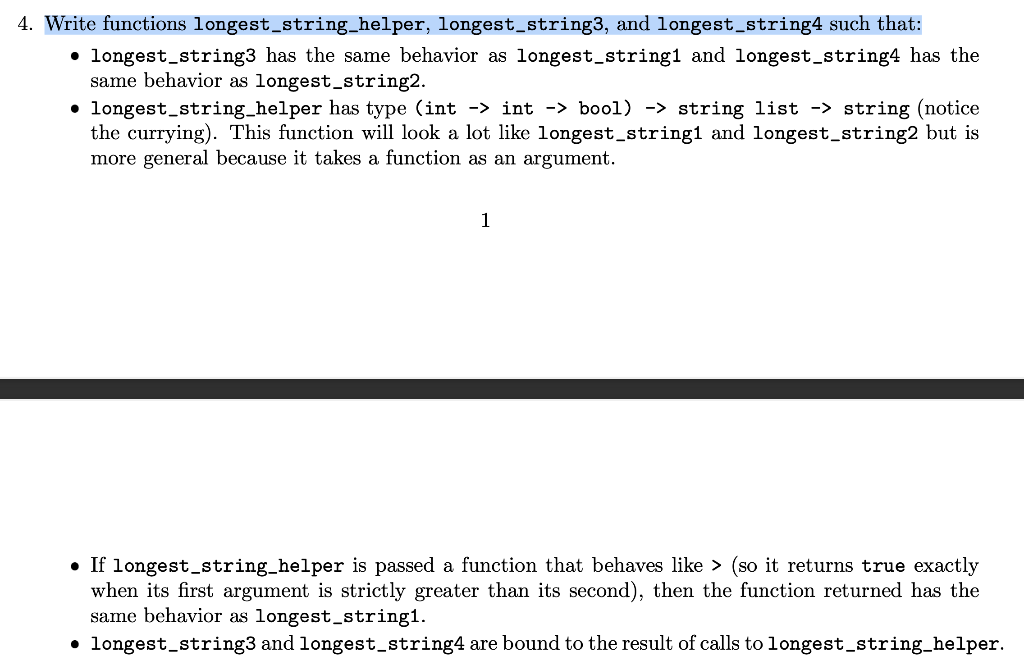Answered step by step
Verified Expert Solution
Question
1 Approved Answer
let longest_string1 = List.fold_left(fun a b -> if String.length(a) >= String.length(b) then a else b) Write in Ocaml .ml (* #3 *) let longest_string2
let longest_string1 = List.fold_left(fun a b -> if String.length(a) >= String.length(b) then a else b) ""
Write in Ocaml .ml
(* #3 *)
let longest_string2 = List.fold_left(fun a b -> if String.length(a) > String.length(b) then a else b) ""
(*here above are longest_string 1 and longest_string 2, please i need help with question 4 thank you so much
notice longest_string_helper has type (int -> int-> bool) -> string list -> string not ( int * int -> bool ) -> string list -> string
OCAML Language

Step by Step Solution
There are 3 Steps involved in it
Step: 1

Get Instant Access to Expert-Tailored Solutions
See step-by-step solutions with expert insights and AI powered tools for academic success
Step: 2

Step: 3

Ace Your Homework with AI
Get the answers you need in no time with our AI-driven, step-by-step assistance
Get Started


